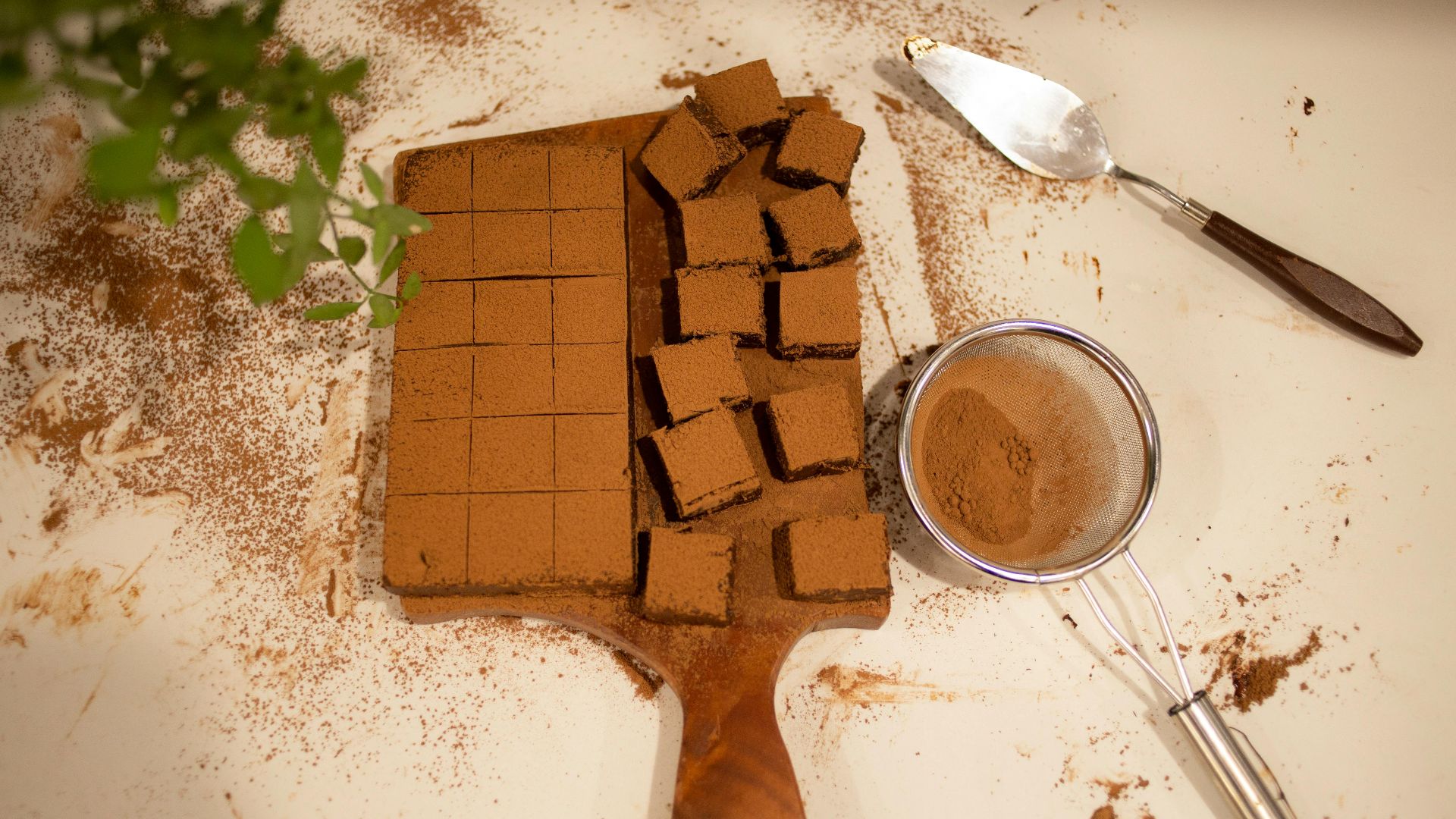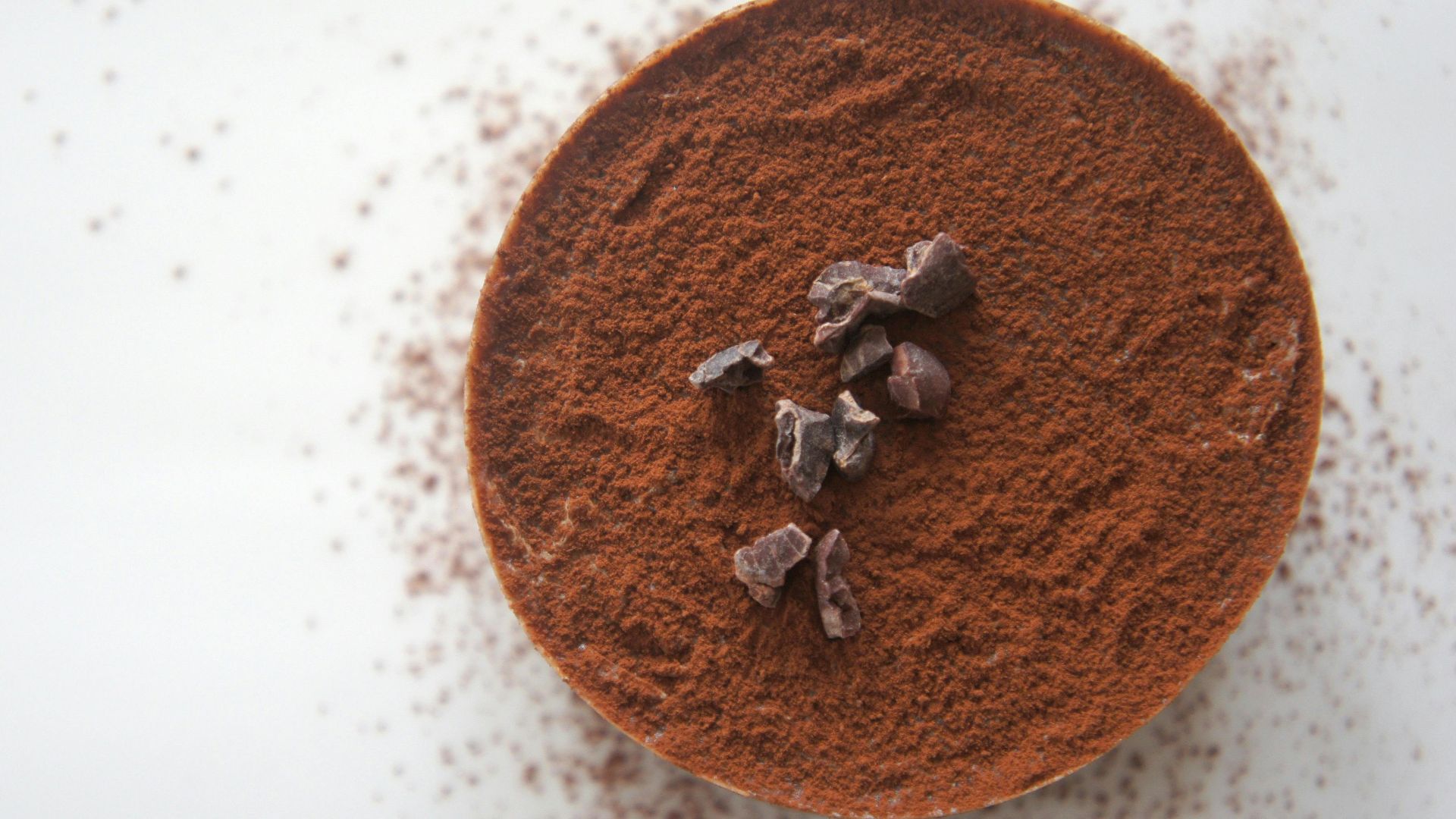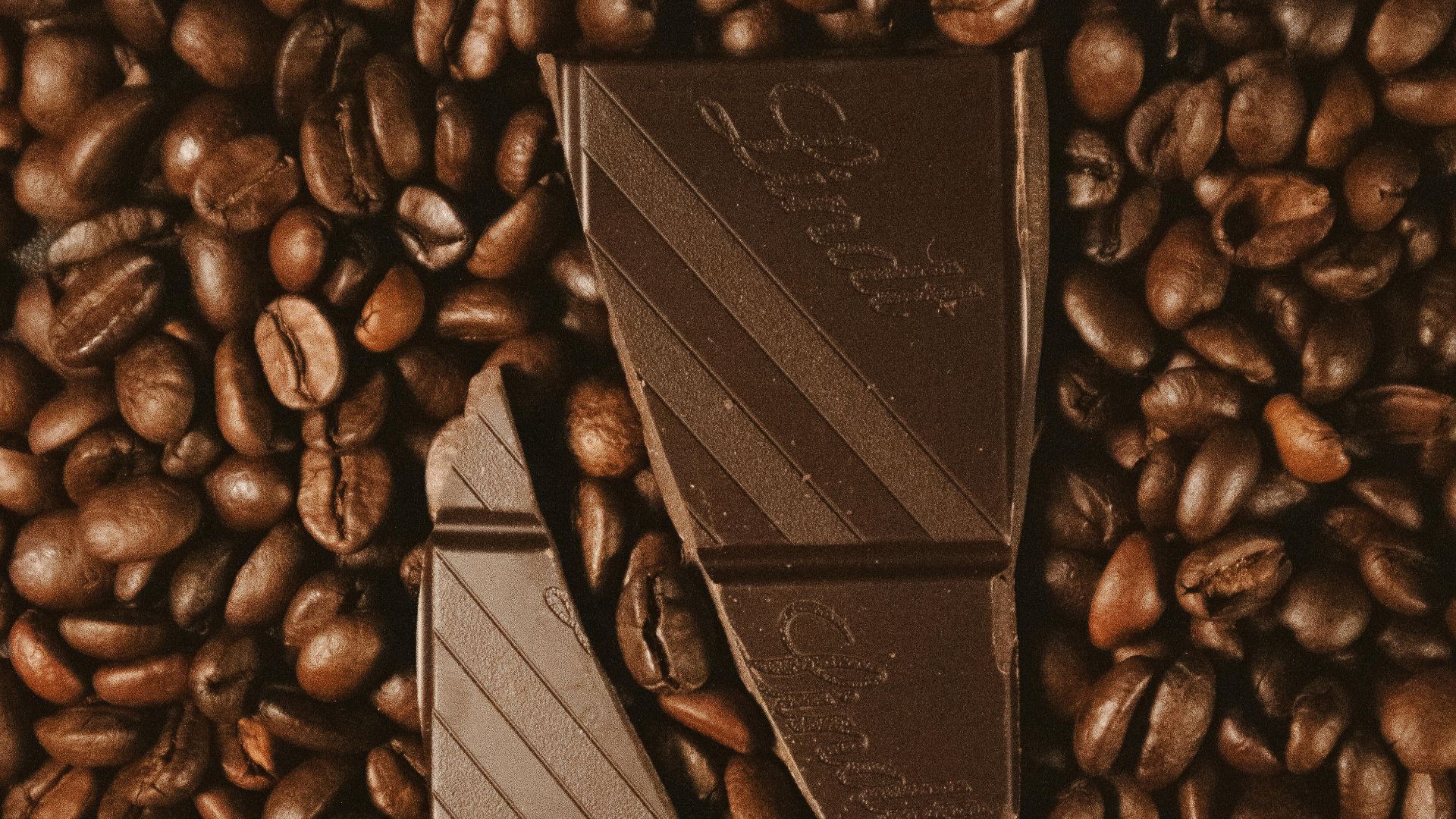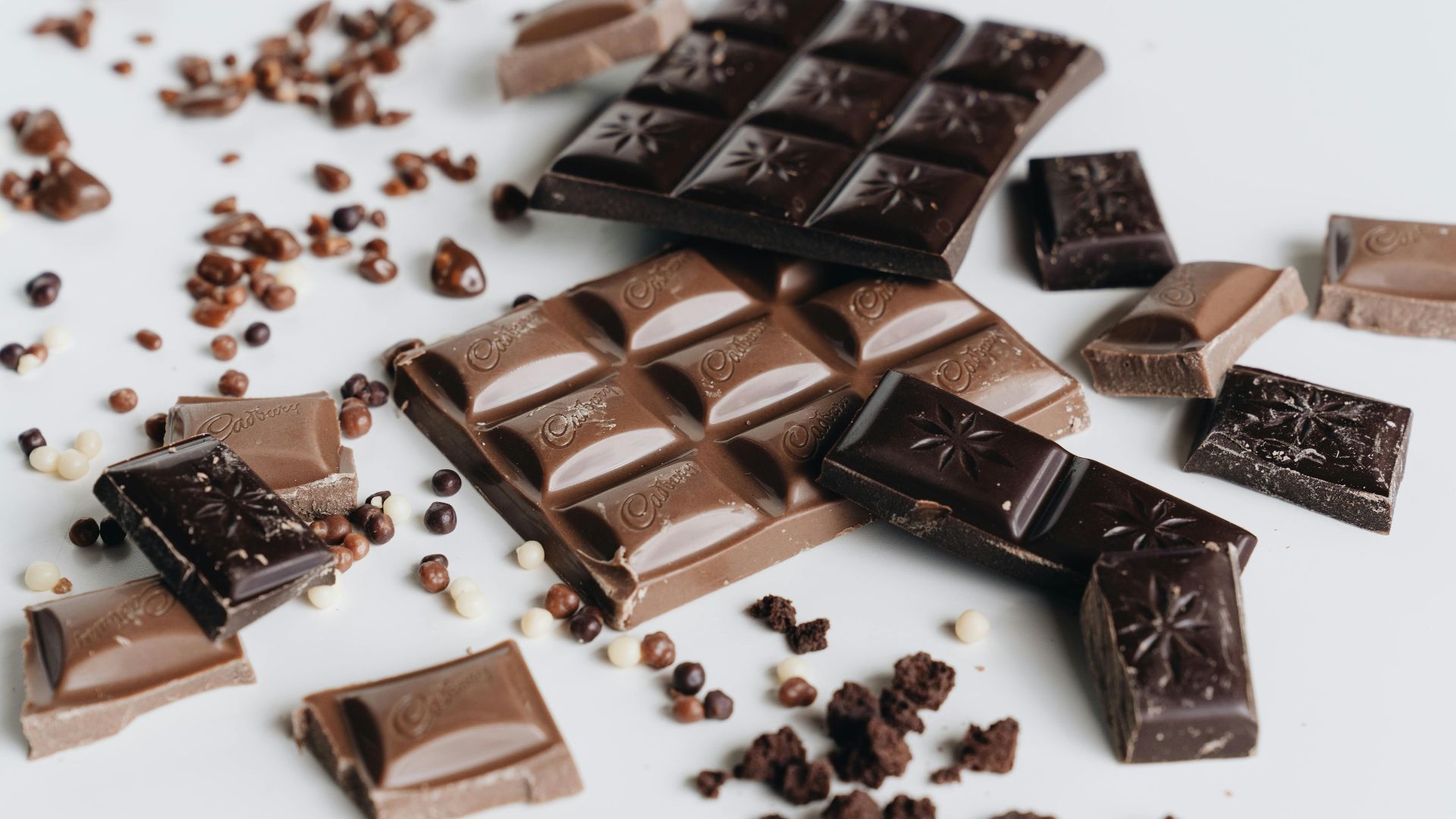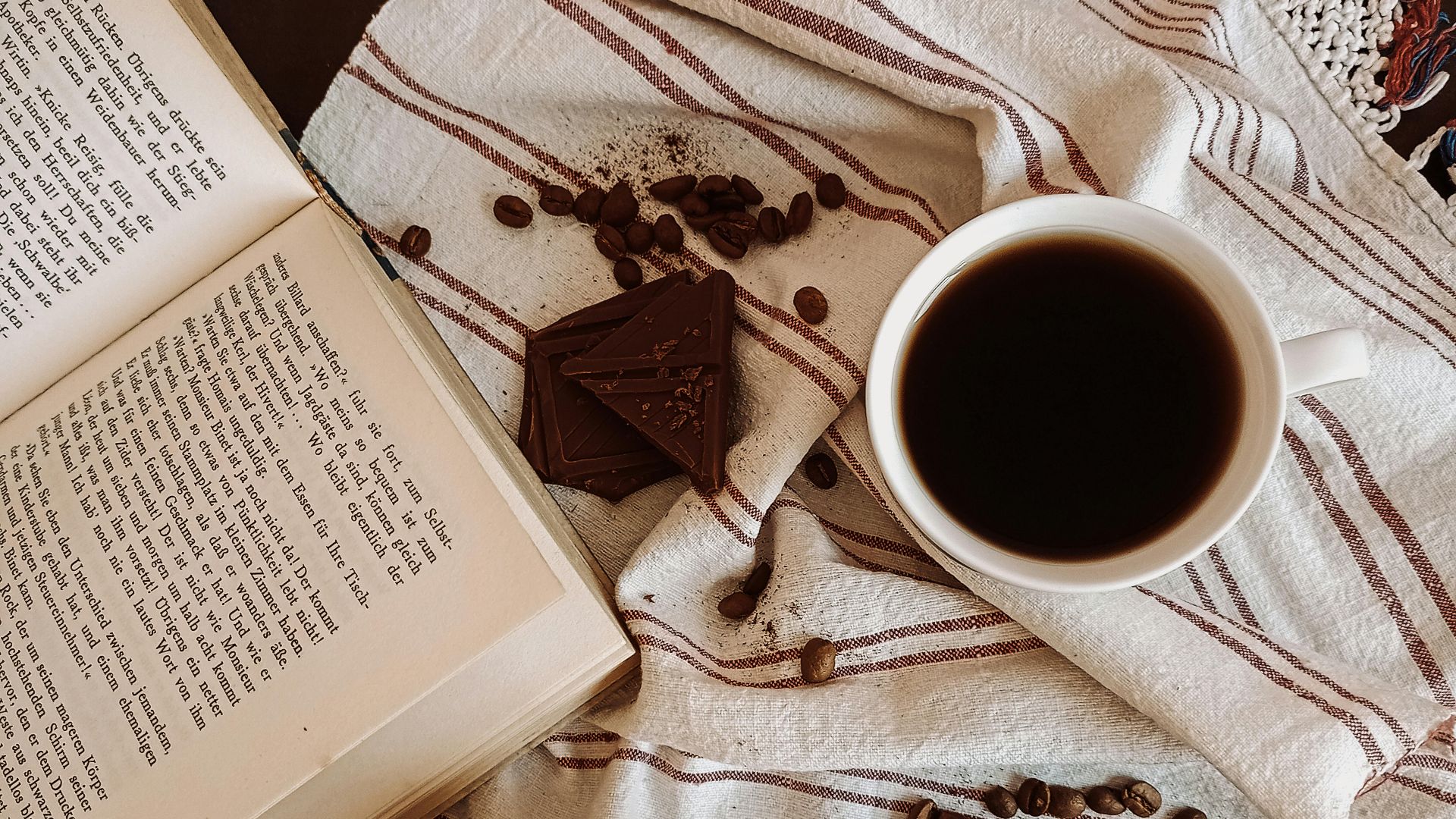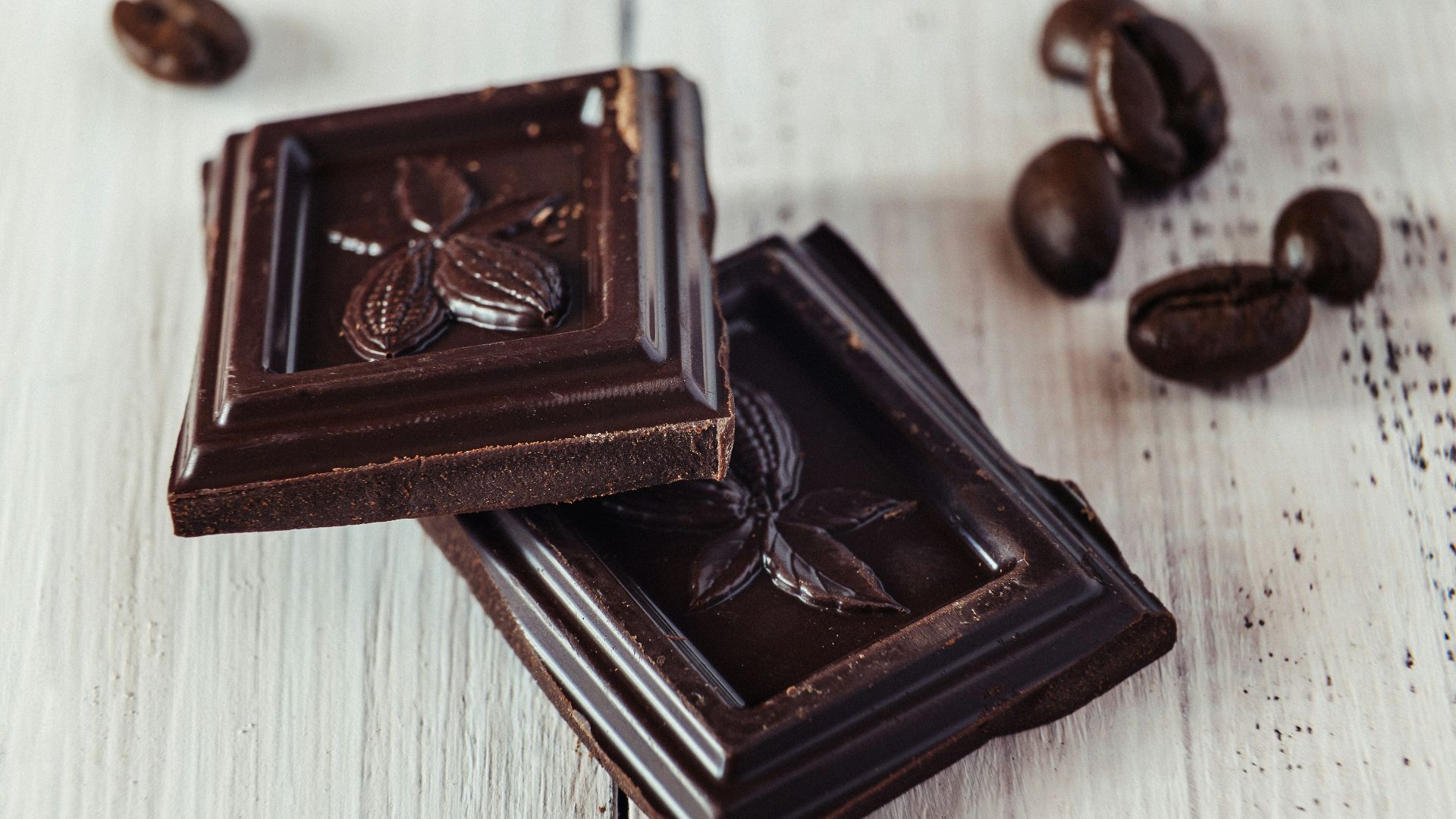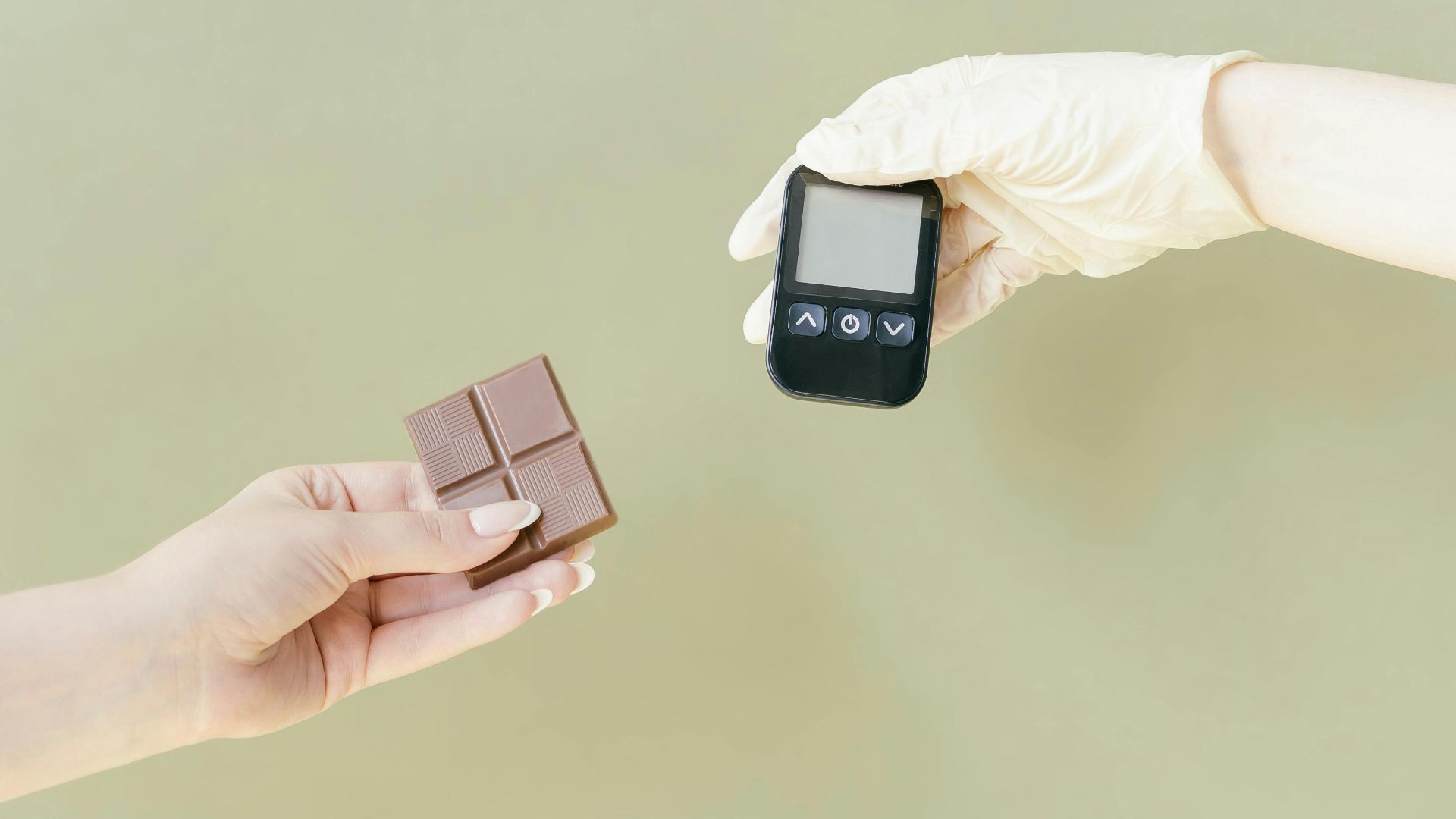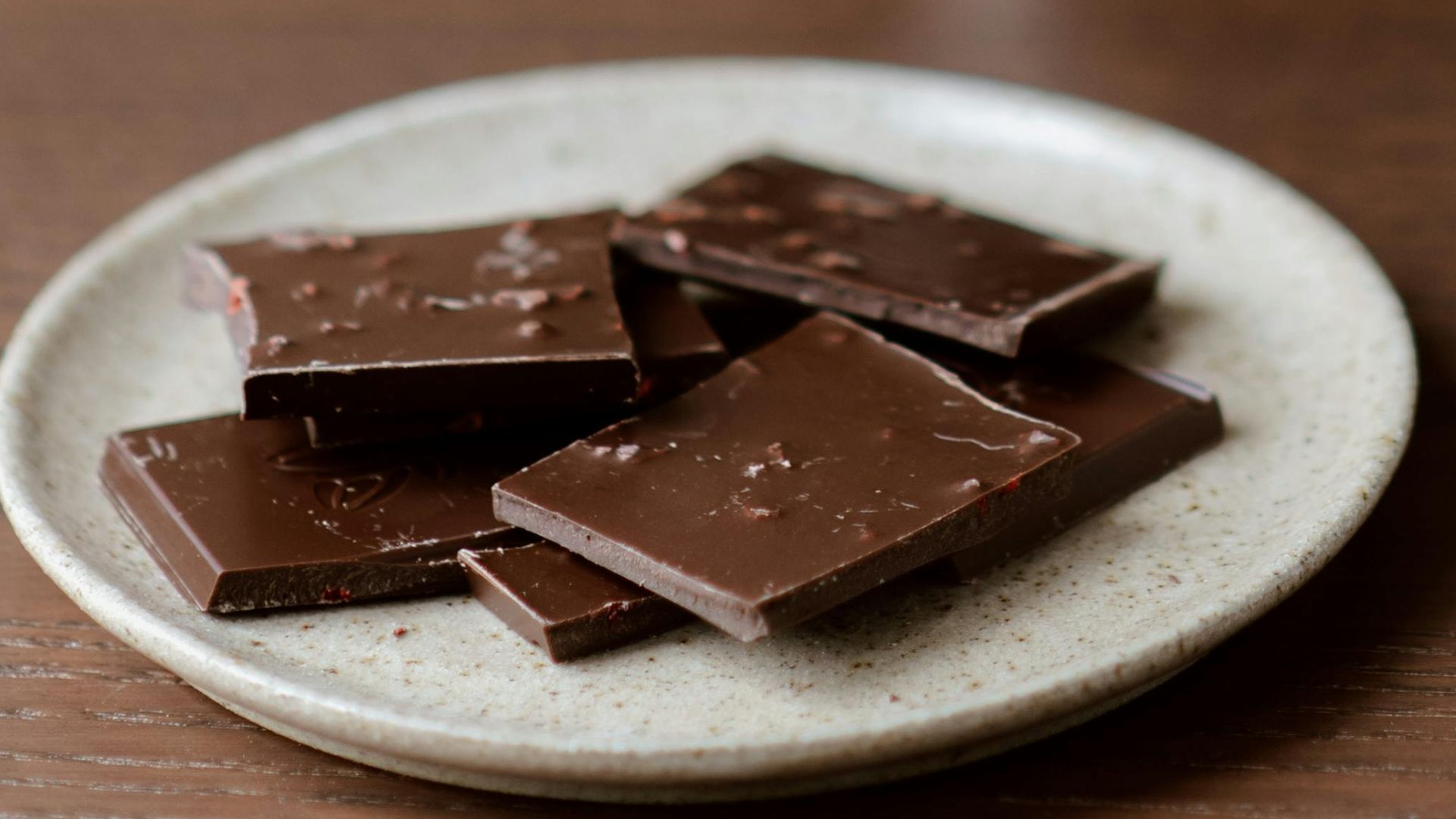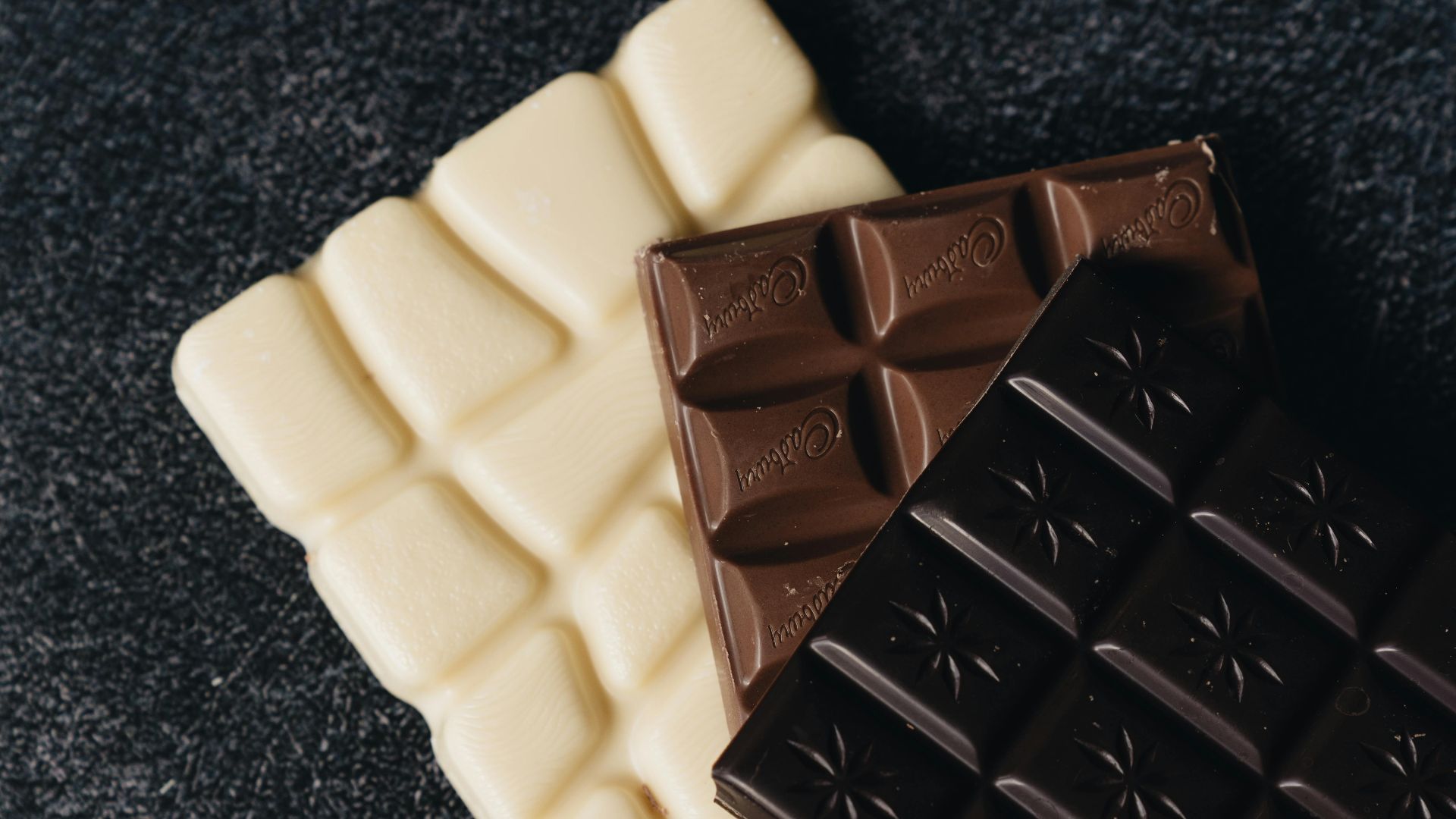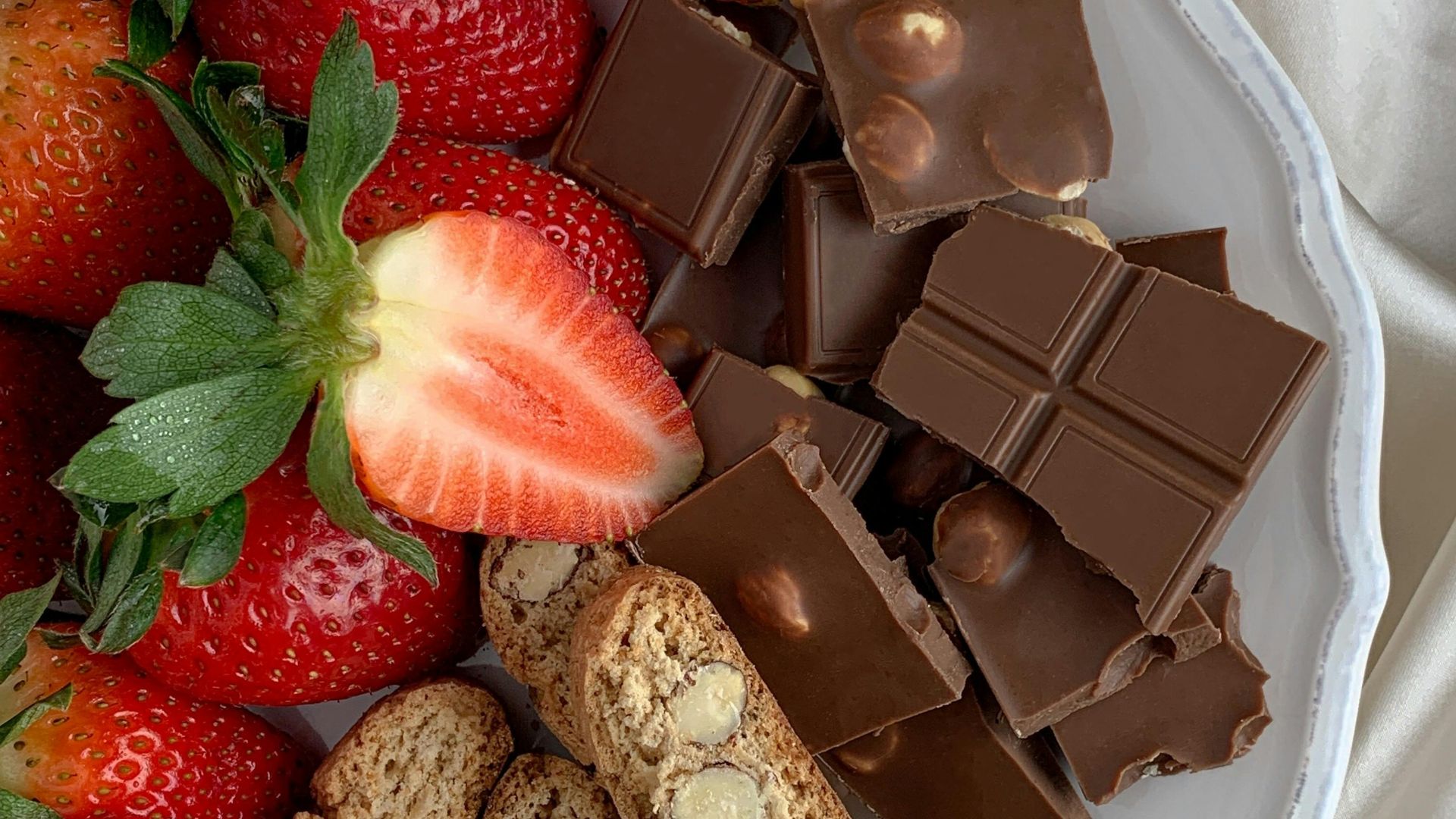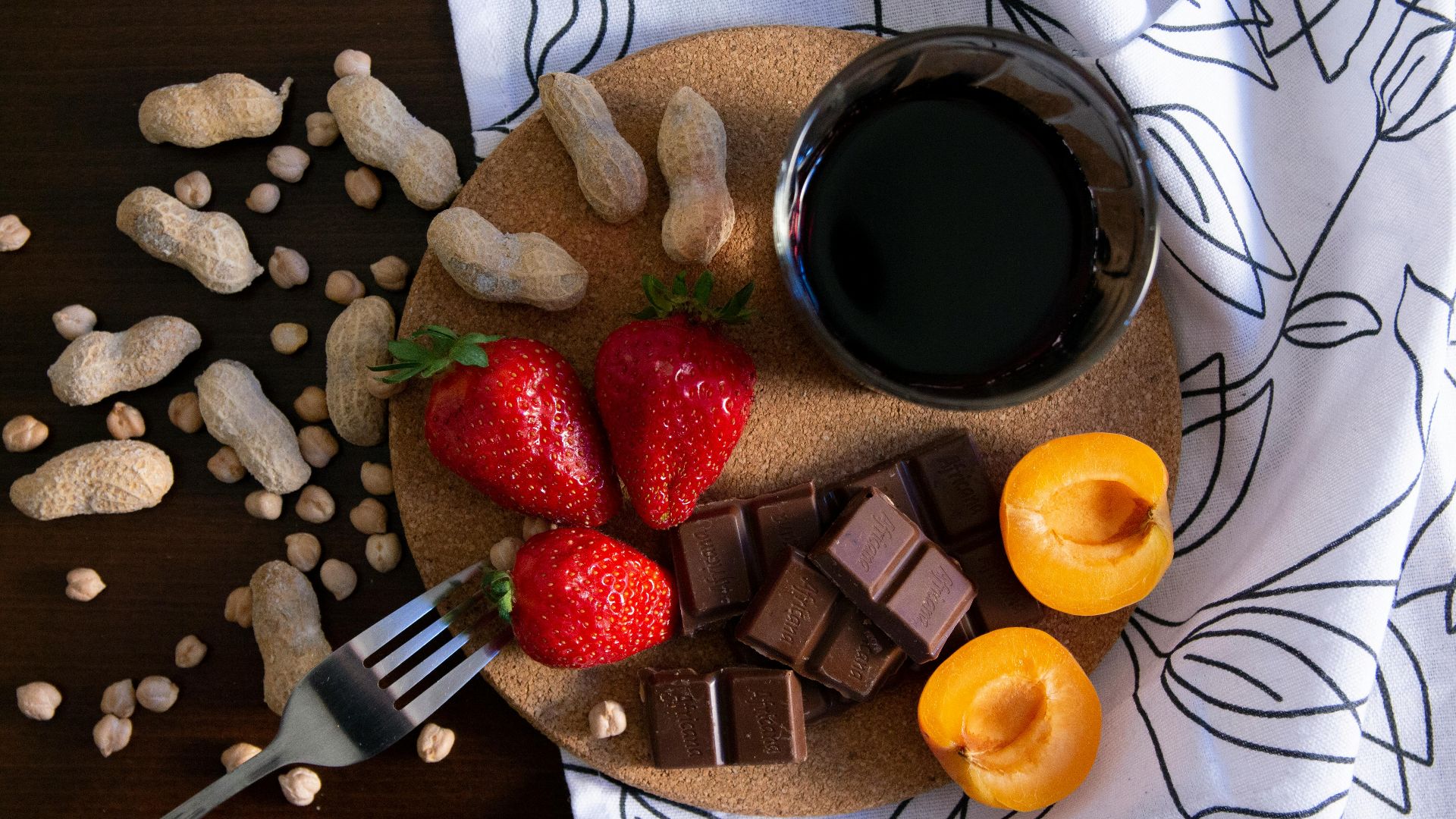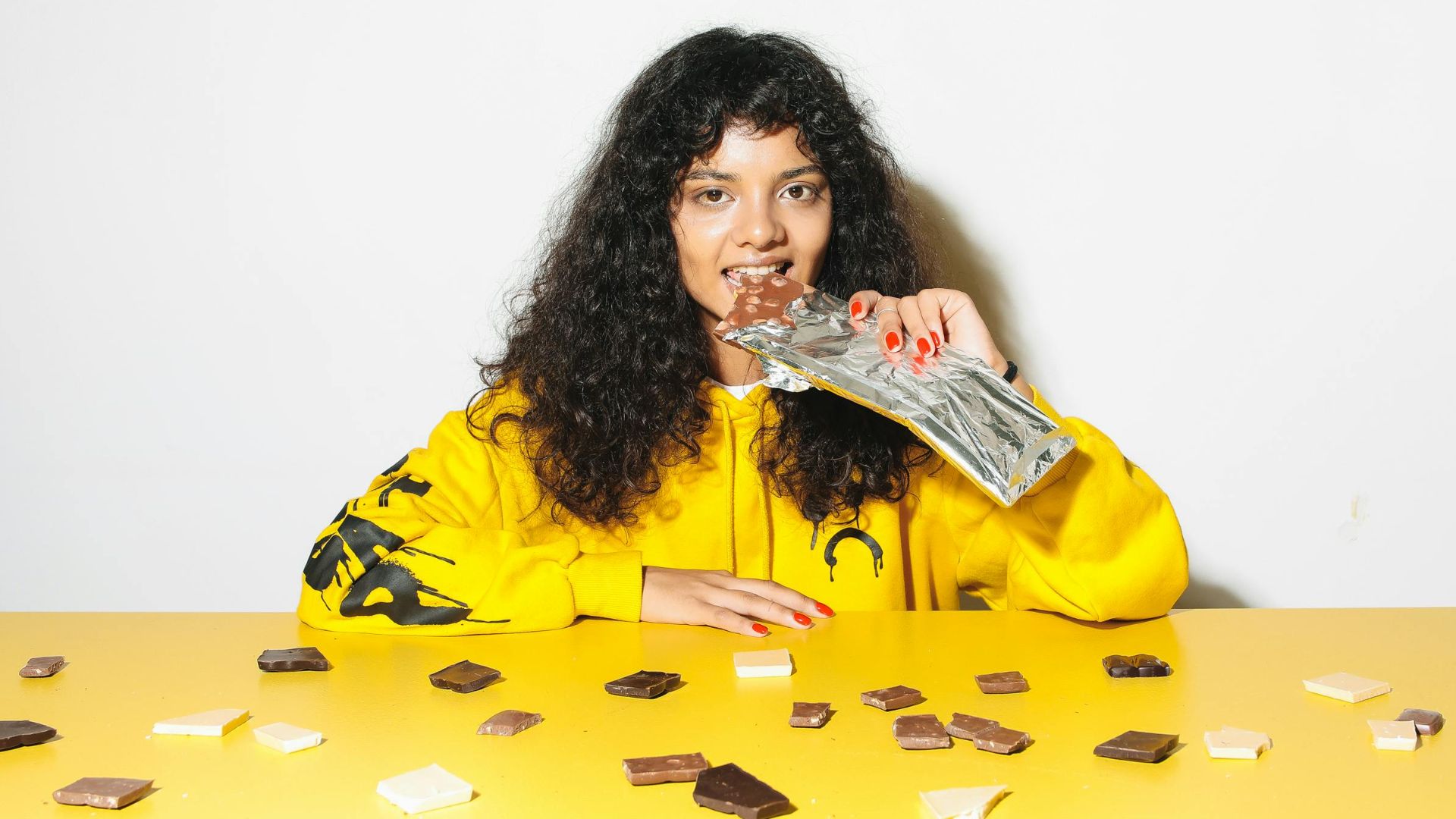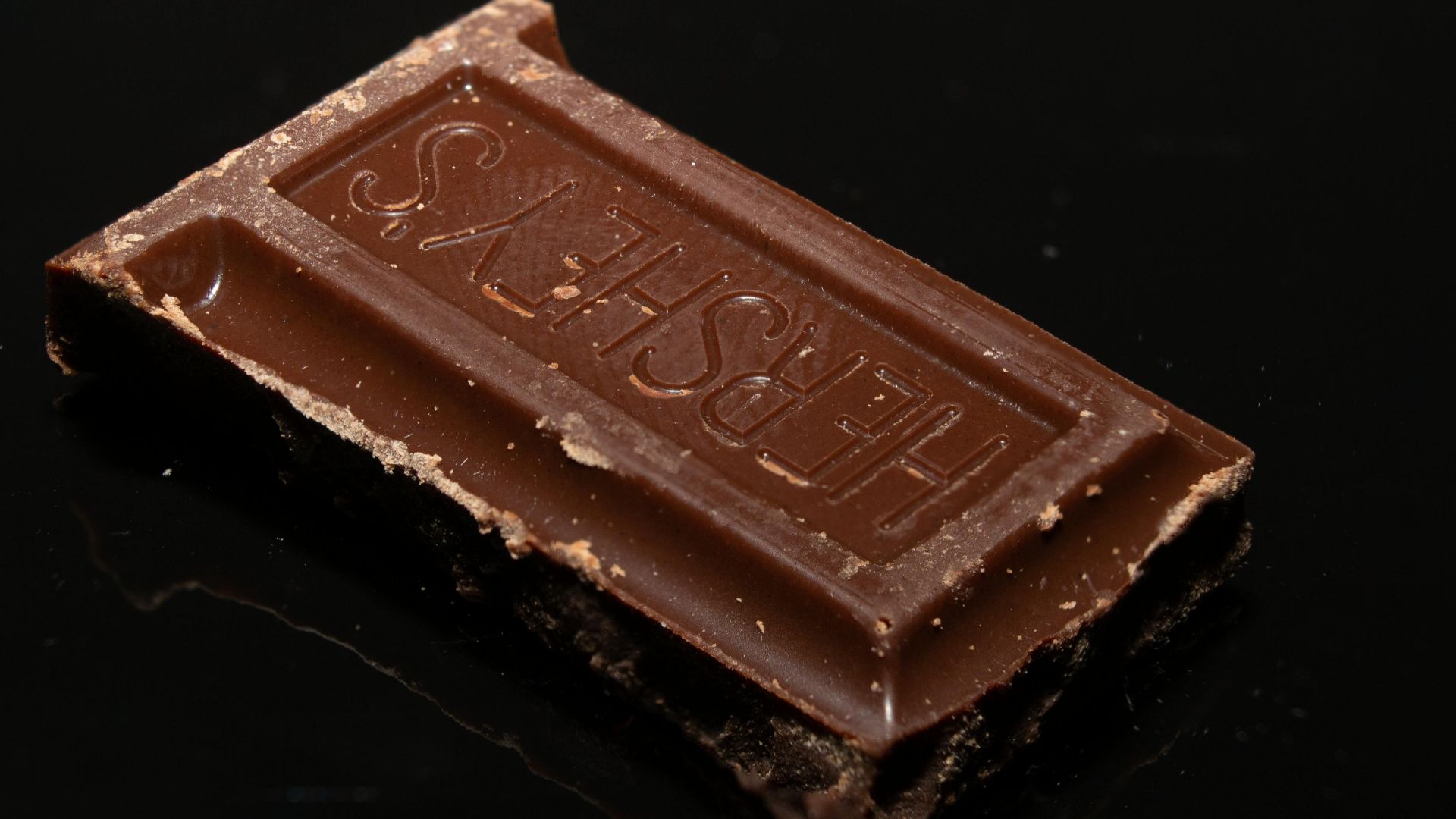Where Pleasure Meets Balance
Chocolate has a way of making any moment feel a little better. But beneath that simple (and healthy) pleasure lies a mix of science and self-control. Enjoyed thoughtfully, it can play a positive role in your life. Indulged in too freely, it can do the exact opposite. We're here to explore both sides of the story—how chocolate helps you but also how to keep it in check. Let’s begin with the health benefits of chocolate.
1. Lowers Blood Pressure
A small piece of dark chocolate can do more than taste good. It may lower blood pressure in people with mild hypertension. Its flavonols, powerful antioxidants in cocoa, boost nitric oxide levels to relax blood vessels and improve circulation for a smoother blood flow.
2. Powerful Source Of Antioxidants
Dark chocolate is a strong source of antioxidants, especially flavonols that guard the body against oxidative stress. It even beats green tea and red wine in antioxidant power. These compounds fight free radicals and help protect against long-term health problems.
3. Positively Influences Gut Microbiota
Your gut bacteria might love chocolate as much as you do. Polyphenols in cocoa act like prebiotics, feeding helpful microbes that keep digestion and immunity strong. This relationship could make chocolate a quiet supporter of better gut health.
4. Supports Healthy Cholesterol Balance
Dark chocolate helps your heart in two ways. It increases HDL, the “good” cholesterol that keeps arteries clear, and protects LDL, the “bad” type, from harmful oxidation. Compounds like theobromine—a mild natural stimulant similar to caffeine—and stilbenes, plant-based antioxidants, work with cocoa’s flavonoids to keep cholesterol stable.
5. Reduces Risk Of Heart Disease
Not all treats come with a warning label. Moderate dark chocolate intake can actually support a healthier heart. Flavanol-rich cocoa strengthens blood vessels and improves circulation. Around 45 grams a week may reduce heart disease risk, but larger amounts don’t boost protection further.
6. Provides Essential Nutrients
A bar of dark chocolate offers more than comfort—it’s full of minerals the body needs. Iron, magnesium, copper, and manganese all appear in generous amounts. It also contains healthy fats like oleic and stearic acids that support long-term heart health.
7. Enhances Cognitive Function
Sharper focus could start with something sweet. Chocolate’s flavanols encourage better memory and attention. Even young adults and children can benefit from consistent cocoa intake, which may also lift mood and keep thinking clear when life demands focus.
8. Protects Skin From UV Damage
Chocolate may quietly defend your skin from the sun. Its flavonols help increase resistance to sunburn and reduce sensitivity to light exposure. Regular, moderate intake can support hydration and elasticity, though it’s no substitute for sunscreen or proper skincare.
9. Exhibits Anti-Inflammatory Properties
Flavonols in cocoa can help ease long-term, low-level inflammation known as “inflammaging.” These powerful compounds, which also act as antioxidants, may lower the impact of age-related inflammation and support the body’s defense against chronic health problems.
10. Improves Insulin Sensitivity
Balanced blood sugar may have an unexpected ally. Dark chocolate’s polyphenols help the body respond better to insulin, allowing glucose to move efficiently into cells. Over time, this effect can support healthier metabolism and lower the likelihood of developing diabetes.
You’ve seen how chocolate can boost your health—now it’s time to explore how to keep that sweetness in balance.
1. Practice Portion Control
Stick to one or two ounces of chocolate a day, about the size of a small bar. Going beyond that adds unnecessary calories and fat. For perspective, a 1.45-ounce dark bar packs around 200 calories, double that of a medium apple.
2. Choose Dark Varieties
Dark chocolate is your smarter pick. It holds more cocoa, fewer added sugars, and far more antioxidants than milk chocolate. The richer the cocoa content, the greater the potential benefits, including improved cholesterol balance and a reduced chance of heart-related issues.
3. Store Out Of Sight
Keeping chocolate hidden away can help you avoid eating it on impulse. Cravings only rise when treats stay visible. Hiding them reduces temptation and mindless snacking—a small trick that helps with portion control and keeps your overall calorie intake in check.
4. Eat Mindfully
Slow down and taste every bite. Paying attention to flavor and texture helps you feel satisfied with less. People who eat mindfully tend to consume fewer calories overall and enjoy their food fully without the guilt that comes with overeating.
5. Pair With Healthy Foods
Combine chocolate with fruits, nuts, or protein-rich snacks. This mix balances sugar with fiber to keep blood sugar steady. A few strawberries or almonds can make chocolate more nutritious while keeping hunger under control and preventing quick energy crashes later.
6. Set Daily Limits
Setting a clear limit for chocolate helps you stay on track. A defined boundary prevents overeating and supports stable energy and mood. Daily structure also helps manage blood sugar, reduce cravings, and build a healthier long-term relationship with sweets.
7. Share With Others
Splitting your chocolate with someone else instantly cuts your intake. Sharing turns a solo craving into a shared moment, and smaller portions mean less temptation. Plus, enjoying chocolate together adds joy while keeping your calories and portions under control.
8. Use As A Reward
Treat chocolate as a small celebration, not an everyday snack. Rewarding yourself after healthy choices reinforces good habits. It feels satisfying without guilt, and the brain’s “feel-good” chemicals make each bite a pleasant, motivating way to mark progress.
9. Buy Smaller Packages
Opt for smaller packs to keep portions under control. People tend to eat more when the package is larger, even unintentionally. Mini bars make it easier to enjoy chocolate responsibly and stop before you take in unnecessary calories.
10. Stay Hydrated
Sometimes thirst feels like hunger. Drinking water before reaching for chocolate can stop unnecessary snacking and make you feel full faster. Staying hydrated keeps cravings in check and helps you enjoy your treat without overdoing the calories.
KEEP ON READING





